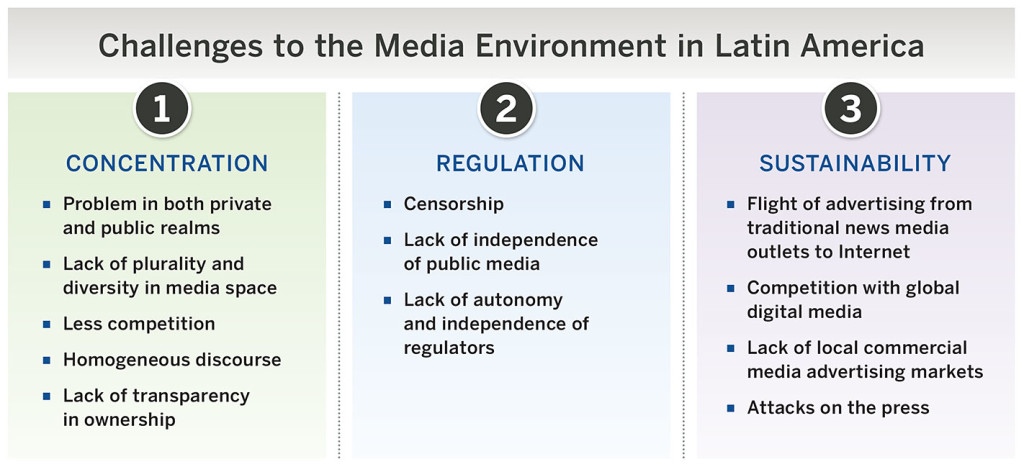It seems that the media development community is always fighting an uphill battle. It is difficult to demonstrate concrete results to donors in media support work, and it is also difficult to move media assistance higher on the overall development agenda. These two things are mutually reinforcing.
In an effort to improve this situation, CIMA, in collaboration with Deutsche Welle Akademie, is trying a new approach: a global series of regional consultations that bring together civil society and media watchdog NGOs, broadcast regulators, academics, media industry representatives, government officials, and others in the media and development sectors to help us diagnose the problems facing independent media.
CIMA, along with nine partner organizations from Europe and Latin America, put together the first of these conferences in Bogotá, Colombia, in November. One participant, Argentine academic Guillermo Mastrini called the event historic. “It is the first time all sides of this debate have been at one table.”
Edison Lanza, special rapporteur for freedom of expression for the Inter-American Human Rights Commission and one of the conference’s chief organizers, tweeted: “A dream come true. All the actors in media, civil society, journalists and regulators…discussing #mediosplurales in the hemisphere.” (Un sueño cumplido. Todos los actores de medios, soc. Civil, periodistas y reguladores… Discutiendo sobre #mediosplurales en hemisferio).
That may sound a bit over the top, but as someone who has lived and practiced journalism all over Latin America, I have to agree with that assessment,
Over two and a half days of meetings and panel discussions, more than a dozen problems facing the media in Latin America surfaced–everything from attacks against journalists, direct and indirect censorship, and Internet regulation to public service broadcasting and access to information laws. In the end, participants agreed that nearly all of these themes fit into at least one of three over-arching categories: concentration of media ownership; transparency and effectiveness of regulation, particularly in the broadcast media; and sustainability of media.
So what next? Our plan is to follow up in Latin America by engaging members of national legislatures and policy makers to put these issues on their agendas. Already a coalition of media watchdog organizations in the region, many of which participated in the conference, has issued a declaration calling on governments to take steps to combat monopolies and undue concentration of ownership in the media.
And the consultations will continue, perhaps next in Africa or Southeast Asia. Such consultations can help:
- Build political will for supporting independent media and for creating a legal environment that allows for the free flow of information, including access to information laws, decriminalization of libel, transparent regulatory procedures, and fair distribution of government advertising expenditures. The key is to include policy makers and change agents who can help secure buy-in for supporting independent media at the highest levels.
- Raise the profile of the role of media in broader development work among donors, both government development ministries and private foundations.
- Redefine how media development work is done.
As I write say in CIMA’s summary of the Bogota conference, Media in Latin America: A Path Forward, “The hope is that donors will use these findings to shape their agendas so as to reflect what the media stakeholders at the country and regional level actually say they need in the way of support, rather than impose top-down media development assistance.”
Don Podesta is the Manager and Editor at CIMA. Formerly he was an assistant managing editor at the Washington Post, where he worked for 27 years. He was born in Chile and raised in Colombia.



Comments (0)
Comments are closed for this post.